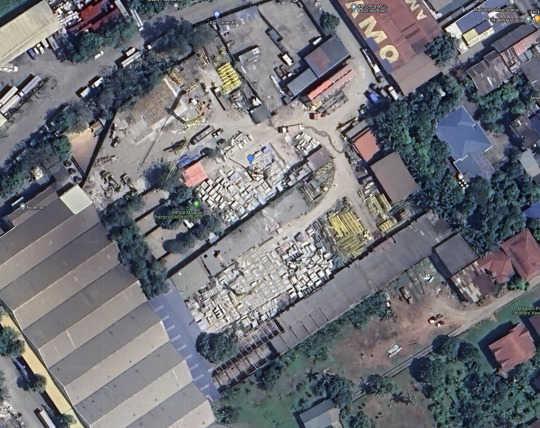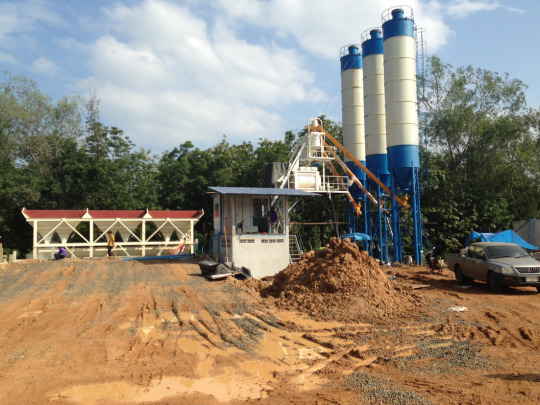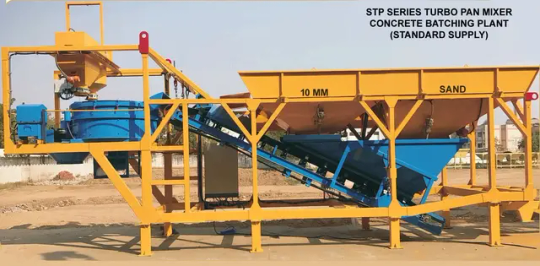#Batching Plant
Explore tagged Tumblr posts
Text




Leonor Will Never Die Martika Ramirez Escobar. 2022
Batching Plant 397 Marcelo H. Del Pilar St, Malabon, 1477 Metro Manila, Philippines See in map
See in imdb
#martika ramirez escobar#leonor will never die#philippines#batching plant#crane#musical#maysilo#malabon#manila#opening titles#sheila francisco#movie#cinema#film#location#google maps#street view#2022
41 notes
·
View notes
Text
Rent a Batching Plant In Delhi with Spectrum Concrete
Spectrum Concrete is your trusted partner. With years of experience in the industry, we pride ourselves on providing superior services that cater to all your construction and infrastructure needs. Our commitment to excellence and customer satisfaction sets us apart, ensuring that your projects run smoothly and meet the highest standards. Our Batching Plant On Rent In Delhi is an ideal solution for contractors, builders, and construction companies who need reliable equipment without the financial burden of long-term ownership. Renting a batching plant from Spectrum Concrete allows you to focus on completing your projects on time, with the confidence that your concrete needs are being met by industry-leading machinery. Whether you're working on residential, commercial, or industrial projects, our rental service offers you flexibility and cost-effectiveness.
0 notes
Text
➜Vess Compact Elegance 5.2 Concrete block machine
⚙️Automatic operation system ⚙️Batching plant ability ⚙️Face mix paving block production
📲+90 549 325 6670 📧[email protected]

#concrete#batchingplant#trabzon#concreteplant#construction#batching plant#concrete batching plant#concretebatchingplant#compactmachine
0 notes
Text
youtube
Portable Concrete Batching Plants - Mobile Ready Mix Machine
Buy quality portable concrete batch mix plants from leading Indian manufacturer of road and civil construction equipment. This mobile ready mix plant is of capacity 30 m3/hr. and is fully mobile plant.
#batching plant#concrete batch plant#concrete batching plant#batch mix#Portable Concrete Batch Mix Plant#Youtube
0 notes
Text
A Simple Analysis of Concrete Batching Plant Price
In the world of construction, efficiency and cost-effectiveness are paramount. Concrete batching plants play a pivotal role in ensuring seamless operations and high-quality output. However, understanding the cost breakdown of different types of batching plants is crucial for informed decision-making. Let’s delve into the intricacies of this essential aspect.

Types of Concrete Batching Plants
1. Stationary Concrete Batching Plants: These plants are characterized by their fixed structure and are ideal for large-scale construction projects. The cost breakdown includes expenses related to land acquisition, initial setup, and maintenance.
2. Mobile Concrete Batching Plants: Offering unparalleled flexibility, mobile plants are suitable for projects requiring frequent relocation. Their cost breakdown typically comprises transportation expenses, installation costs, and ongoing maintenance.
3. Compact Concrete Batching Plants: Designed for small to medium-scale projects, compact plants combine efficiency with space-saving features. The cost breakdown involves factors such as equipment purchase, site preparation, and operational expenses.
Factors Influencing Costs
1. Capacity: The production capacity of a batching plant significantly impacts its cost. Higher capacity plants entail greater initial investment but offer economies of scale in the long run.
2. Technology and Features: Advanced technologies and additional features like automation, computerized control systems, and environmental protection measures contribute to the overall cost.
3. Maintenance and Operating Costs: Regular maintenance, spare parts availability, and energy consumption are ongoing expenses that need to be factored into the cost analysis.
Optimizing Cost Efficiency
1. Comparative Analysis: Conducting a comprehensive comparison of different types and models of batching plants helps in identifying the most cost-effective option tailored to specific project requirements.
2. Lifecycle Cost Assessment: Considering the lifecycle cost, including initial investment, operational expenses, and potential resale value, provides a holistic view of the financial implications.
3. Supplier Evaluation: Choosing a reputable supplier with a track record of delivering quality equipment and reliable after-sales support is crucial for minimizing unforeseen costs and ensuring long-term efficiency.
Understanding the cost breakdown of concrete batching plants empowers construction professionals to make informed decisions, maximize productivity, and optimize resource utilization. To explore further insights into enhancing construction efficiency and reducing costs, delve into our comprehensive guide. Read more for a deeper understanding.
0 notes
Text
Purpose: Designed for efficient production of fly ash bricks.
Raw Materials: Fly ash, cement, sand, additives.
Process: Mixing, batching, molding, curing.
Equipment: Concrete mixer, batching plant, molds.
Quality Control: Ensures strength, size, appearance meet standards.
Sustainability: Utilizes fly ash, a byproduct of coal combustion.
Benefits: Lower environmental impact, better thermal insulation.
Packaging: Bricks stacked on pallets or packed in bundles.
Distribution: Ready for transportation to customers.
Importance: Provides sustainable alternative to traditional clay bricks.
0 notes
Text
What Are the Benefits of Using Automated Systems in a Batching Plant?
In the dynamic realm of concrete production, the integration of automated systems in batching plants has become a pivotal factor, revolutionizing the way we approach construction projects. Let's delve into the myriad advantages that propel these systems to the forefront of modern concrete manufacturing.
1. Precision and Consistency
Automated systems, whether in a mobile batch plant or a stationary concrete batching plant, guarantee precision in every mix. The meticulous algorithms ensure the exact proportions of raw materials, resulting in a consistent and high-quality end product.

2. Time is Money
Time efficiency is the cornerstone of any successful construction project. Automated batching plants streamline the production process, minimizing downtime and maximizing output. This time-saving advantage is especially crucial in the competitive world of construction.
3. Flexibility on the Go
For projects requiring mobility, a mobile batch plant equipped with automation technology offers unparalleled flexibility. The ability to produce concrete on-site reduces transportation costs and allows for a rapid response to changing project demands.
4. Error Elimination
Automation minimizes the margin for human error, enhancing the reliability of the batching process. This translates to fewer disruptions, reduced waste, and ultimately, cost savings for the customer.
5. Environmental Sustainability
Beyond efficiency, automated batching plants contribute to environmental sustainability. Precise material measurements result in reduced waste, and energy-efficient processes align with the growing emphasis on eco-friendly construction practices.

6. Integration with Industry 4.0
Embracing the era of Industry 4.0, automated batching plants seamlessly integrate with digital technologies. Real-time monitoring, data analysis, and remote control capabilities empower project managers with a comprehensive overview, enhancing decision-making.
7. Enhanced Safety Measures
Automated systems promote a safer working environment. With fewer manual interventions, the risk of accidents decreases significantly, ensuring the well-being of the workforce and reducing the likelihood of project delays due to safety issues.
8. Cost-Effectiveness
While the initial investment in automated systems may seem substantial, the long-term cost benefits are undeniable. Reduced material waste, lower labor costs, and increased productivity contribute to a compelling return on investment.

9. Future-Proofing Your Operations
Investing in automated batching plants is not just a contemporary trend; it's a strategic move to future-proof construction operations. Staying ahead in the industry requires embracing innovations that enhance efficiency, reliability, and sustainability.
Conclusion: Embrace the Future of Concrete Production
In the dynamic world of construction, automated batching plants, whether mobile or stationary, emerge as indispensable assets. The benefits extend beyond mere efficiency, encompassing precision, cost-effectiveness, and environmental consciousness. By investing in automated systems, you're not just upgrading your batching process of the batching plant— you're future-proofing your construction endeavors.
0 notes
Text
Factors Affecting the Productivity of Concrete Batching Plants
Concrete batching plant play a pivotal role in the construction industry, providing a reliable and efficient method for producing the vital building material – concrete. The productivity of these plants is crucial for meeting project deadlines, ensuring quality construction, and ultimately contributing to the success of infrastructure development. In this blog, we will explore the key factors that influence the productivity of concrete batching plants.
Plant Design and Configuration: The design and configuration of a concrete batching plant significantly impact its productivity. Factors such as the type of mixer, storage silos, aggregate bins, and the overall layout play a crucial role. A well-designed plant ensures smooth operations, efficient material flow, and minimizes downtime.
Equipment Quality and Maintenance: The quality of the batching plant equipment, including mixers, conveyors, and weighing systems, directly affects productivity. Regular maintenance is essential to prevent breakdowns and ensure that all components function optimally. Proper lubrication, timely inspections, and swift repairs contribute to sustained productivity.
Automation and Control Systems: The level of automation in a concrete batching plant can greatly enhance productivity. Modern control systems allow for precise monitoring and control of various parameters such as mixing ratios, water content, and material flow. Automated systems reduce human error, improve efficiency, and contribute to consistent quality.
Raw Material Quality: The quality of raw materials, including aggregates, cement, and water, significantly influences the productivity of a batching plant. Inconsistent material quality can lead to variations in concrete mixtures, affecting both the production process and the final product. Regular testing and quality control measures are crucial to maintaining productivity.
Batching Accuracy: Accurate batching of materials is essential for producing high-quality concrete and maintaining productivity. Any deviation from the specified mix proportions can lead to issues such as concrete strength variations and setting time discrepancies. Precise weighing systems and regular calibration are vital for batching accuracy.
Environmental Conditions: Environmental factors, such as temperature and humidity, can impact the setting time and workability of concrete. Batching plants must be equipped to handle variations in weather conditions to ensure consistent productivity. Adequate climate control measures and appropriate curing processes are essential for achieving desired concrete properties.
Operator Skill and Training: The proficiency of plant operators plays a critical role in maximizing productivity. Well-trained operators understand the intricacies of the batching process, can troubleshoot issues effectively, and contribute to efficient plant operation. Continuous training programs are essential to keep operators updated on best practices and new technologies.
Project Requirements and Planning: The specific requirements of construction projects, including mix design, production volume, and delivery schedules, impact batching plant productivity. Adequate planning, coordination, and communication between project stakeholders ensure that the batching plant Manufacturer can meet the demands of the construction site.
Conclusion:
In conclusion, the productivity of Best concrete batching plant is influenced by a combination of design, equipment quality, automation, material quality, accuracy, environmental conditions, operator proficiency, and project planning. By addressing these factors comprehensively, the construction industry can enhance the efficiency of concrete production, leading to timely completion of projects and improved overall quality of infrastructure.
#batching plant#batching plant manufacturer#best Concrete batching plant#concrete batching plant#concrete batching plants
0 notes
Text
FULLY AUTOMATIC CONCRETE BATCHING PLANT

Automating a concrete batching plant involves integrating technology and control systems to streamline and optimize the process of producing concrete batches. Automation can enhance efficiency, accuracy, consistency, and overall production quality. Here are the key steps and aspects to consider when automating a concrete batching plant:r when automating a concrete batching
1 note
·
View note
Text

a moment of peace
I am really happy with this one! I got inspired by @stormyblue90 s fox HC "Fox Hates Red" and had this image of Fox surrounded by greenery, just coming down from another hard day at work.
tags: @decembermidnight @peggy7447| If anyone else would like a tag on my drawings lmk :)
#fox#commander fox#marshal commander fox#art#drawing#sketch#star wars#the clone wars#the bad batch#digital art#artists on tumblr#plants#greenery#cactus#cacti#ferns#clone#clone commander fox#star wars art#illustration#gromblins art
2K notes
·
View notes
Text
Batching Plant Installation Procedure
The concrete batching plant installation is a complex and systematic project that involves multiple steps and components for precise installation. The following is an overview of a typical installation procedure:
- Preliminary Preparation: Foundation Inspection: Firstly, check whether the foundation has met the installation requirements, including the levelness and strength of the foundation, as well as the reserved pits and buried parts. Equipment Inspection: Detailed inspection of all the concrete batching plant equipment to be installed to ensure that there are no problems such as damage or missing parts.
- Main structure installation: Installation of mixing layer beams: connect the mixing layer beams with bolts and joint plates as a whole, and use the crane to lift and rotate them to a suitable position, and then connect them with the four columns. Installation of mixing mainframe: lift the mixing mainframe onto the beam and connect it with bolts, and adjust its level and position at the same time. Installation of weighing layer: the weighing layer also needs to be lifted and connected with the mixing layer to ensure that the measuring hoppers are in a free state and do not interfere with other parts.
- Installation of auxiliary equipment: Cement silo installation: the cement silo needs to be assembled on the ground with relevant parts (such as dust collector, cables, etc.), then lifted to the predetermined position and adjusted for verticality and horizontality. Screw conveyor installation: assemble the screw conveyor and hoist it onto the discharge port of the cement silo, align it with the inlet of the measuring hopper and then fasten it. Installation of dust collector, temporary storage warehouse, etc.: Lift the dust collector, temporary storage warehouse and other auxiliary equipments into place and connect them according to the design requirements.
- Conveying system installation: Installation of belt conveyor: For inclined belt conveyor, connect the racks of each section, install belts, roller sets, etc., and lift them into place with cranes. Adjust the tensioning device so that the belt tension is appropriate. Water installation: set the pump in position and install the water supply pipeline. Users can build their own pool or directly connect the pump to the water pipeline as needed.
- Electrical system installation: Control electrical installation: mixing and metering system control appliances are installed in the main electrical cabinet and console. Before external wiring, check whether the electrical components are intact and connect them according to the electrical schematic diagram. Grounding protection: The installation site needs to have good grounding protection measures to ensure equipment safety.
- Commissioning and acceptance: Empty car working experiment: all equipment installation is completed after the need for empty car working experiment, check whether the equipment is running normally, whether the lubrication point is filled with lubricating oil or grease. Acceptance: According to the design requirements and relevant standards for the full acceptance of the mixing plant to ensure that it meets the requirements for use.
Generally speaking, concrete batching plant manufacturers usually provide installation services in order to provide more comprehensive services. However, whether the installation is included and the specific content of the installation service (such as whether it includes commissioning, training, etc.) may vary from manufacturer to manufacturer. Installation services provided by concrete batching plant manufacturers usually include the following aspects: - Site survey and preparation: Before installation, the batching plant manufacturer will send technicians to the site to conduct a survey to ensure that the installation environment meets the requirements, and to carry out the necessary preparatory work, such as cleaning up the site and preparing installation tools. - Equipment installation: according to the design drawings and technical requirements, the concrete batching plant manufacturer's technical personnel will be in accordance with the installation program for equipment installation. This includes the installation of the mixing machine, metering system, conveying system, control system and other components. - Debugging and test run: After the equipment installation is completed, the batching plant manufacturer's technical personnel will carry out debugging and test run to ensure that the equipment functions properly, and adjust and optimize as needed. - Operation training and after-sales service: After the equipment installation and commissioning is completed, the concrete batching plant manufacturer will usually provide customers with operation training services to help customers master the correct use of equipment. At the same time, batching plant manufacturers will also provide certain after-sales service, such as equipment warranty, maintenance and so on.
In short, the batching plant installation is a complex process that requires specialized knowledge and experience. Choosing a qualified manufacturer for installation can ensure the normal operation and service life of the equipment.
This resource is from http://www.concrete-mix-plant.com/news/batching-plant-installation-procedure.html Should you be interested in, please contact us at: Haomei Machinery Equipment Co.,ltd Whatsapp/Wechat: 0086 181 3788 9531 Email: [email protected]
#batching plant installation#batching plant installation procedure#batching plant#concrete batching plant
0 notes
Text
Are the Hollow Machines and Paving Machines The Same?
Two of the most used products at present are Hollow and Paving blocks in the construction sector. Although the areas of use of both are similar and different, they are made from almost the same material. Although the machines that produce these products have some differences in terms of both names and systems, they operate with a similar system, and with some physical chances, both machines can produce both products.
Therefore, what these products are, their features, where they are used, their machines, and their production process must be known well.




0 notes
Text

shrimp 🦐🦐🦐
#star wars#the bad batch#arc trooper echo#tbb echo#tbb tech#aviiart#im pretty sure this idea was planted by a moon knight fanart i saw like years ago#BUT ISTG I CANT FIND IT#also echo and shrimp chips is apparently just a thing™️in my drawings now
877 notes
·
View notes
Text

Tower Unit Of Mobile Asphalt Batch Plant - Atlas Technologies
Asphalt batch plant can be installed in 2 days. tower unit of mobile asphalt plant with 120 tph capacity.Exporter of hot mix plants at a low price.
0 notes
Text
Industrial facility for producing ramming mass, a refractory material.
Used in steel manufacturing and other high-temperature industries.
Combines raw materials like quartz powder, alumina, silica, etc., in precise proportions.
Equipment includes mixers, conveyors, and storage silos.
Mixture is compacted or "rammed" into furnaces or other high-temperature equipment.
Crucial for maintaining furnace linings and equipment longevity.
Ensures quality and consistency in ramming mass production.
Includes control systems for managing the batching process.
Essential for high-temperature applications' performance and efficiency.
Contributes to overall industrial process reliability and safety.
0 notes